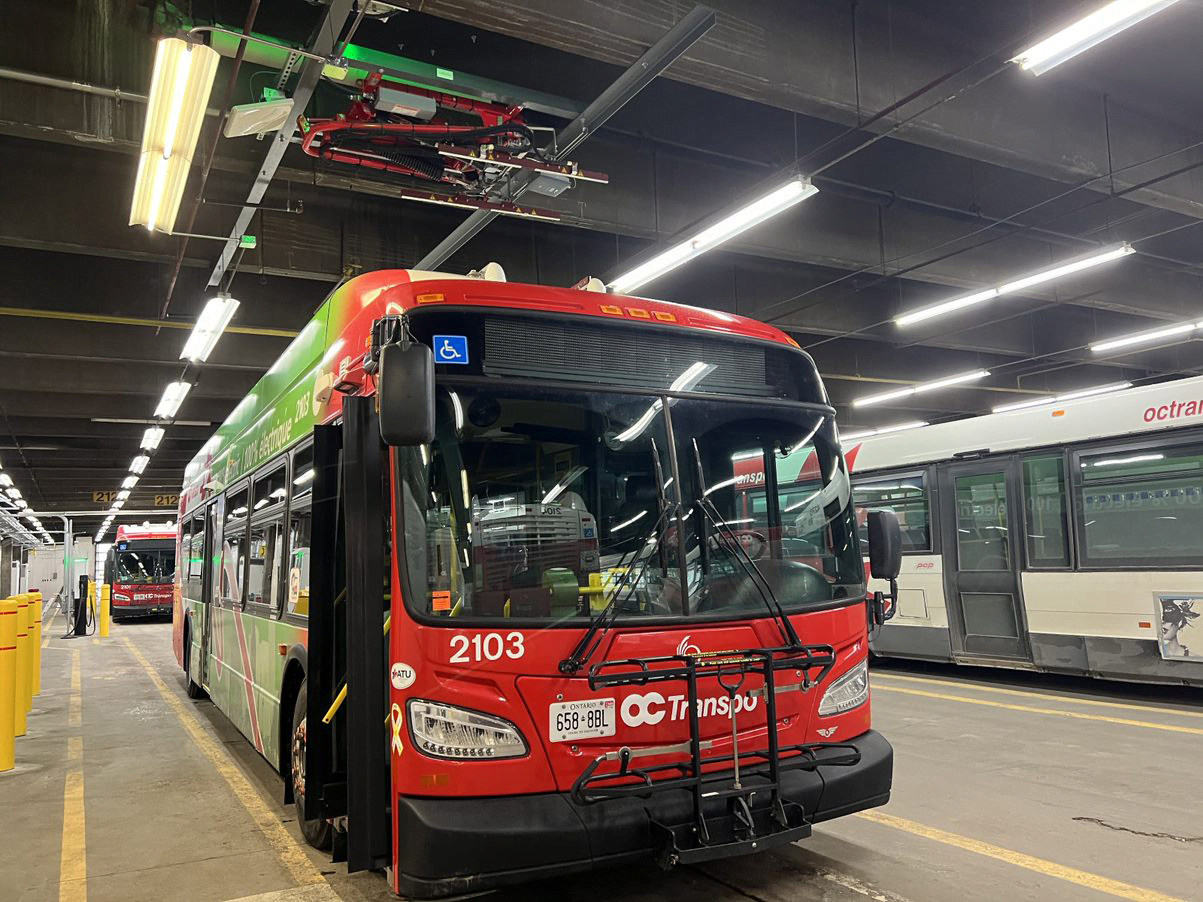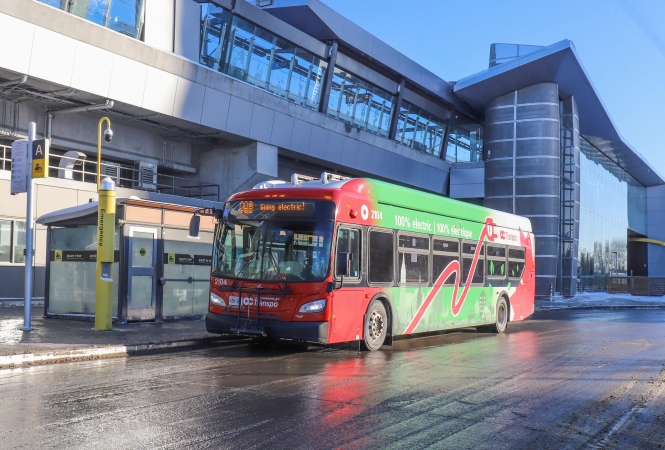Getting around the city emission free is about to get easier as Ottawa begins expanding its electric bus fleet.
Last week OC Transpo reported on a successful pilot project that saw four electric buses go into service in February 2022. The e-buses have traveled nearly 500,000 kilometres across the city, demonstrating reliability and mileage comparable to the city’s existing diesel buses. Each bus saved 25,000 litres of fuel per year for a total of 200,000 litres for the entire pilot project.

With a fleet of 814 diesel buses, expanding the zero-emission bus program is key to meeting the city’s climate targets. Another 51 e-buses are on the way, with about half of them arriving this year and the rest in 2025. The next 297 are expected by the end of 2027.
The e-bus purchases go right to the heart of the city’s plans for net-zero by 2050. The City’s Energy Evolution Plan calls for zero-emission vehicles to make up 48% of the fleet by 2025 and 100% by 2030. The latest estimate puts those numbers at 12% by the end of 2025 and 43% by the end of 2027. While this expansion is great news, we still need to speed things up. City staff indicated that their attention will soon turn to phase two with a technical review which could include innovative technology such as inductive charging systems.

While we get more e-buses on the road, we also need more riders onboard. Transit systems everywhere were ravaged by the COVID-19 pandemic, and Ottawa has also had to navigate the launch of O-Train Line 1, major construction detours, and route changes. The reopening of Line 2, a new Line 4 heading north to south, and Line 1 and 3 expansions to the east and west should bring more riders onto the system. But building back trust and goodwill is likely to require more effort and attention.
OC Transpo estimates it could take another 10 years to bring ridership numbers back to pre-pandemic levels. That may not be entirely due to the pandemic, since volumes in comparable Canadian cities like Edmonton and Waterloo have already rebounded and surpassed 2019 numbers. A recent report by Environmental Defence Canada and Équiterre emphasizes the crucial role of provincial and federal governments in helping to fund day-to-day transit operations, not just one-time purchases like new trains and buses.

Buses are the backbone of Ottawa’s transit system, and electrifying the fleet is an important part of the city’s climate action plan. The progress is great to see, and we can all look forward to seeing more e-buses around as Ottawa gradually becomes a greener city with more mobility options.
